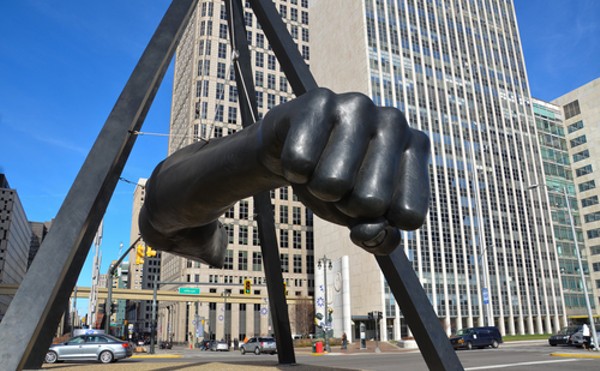It took no less than 82 pages for a federal judge to explain why he will do virtually nothing to U.S. Attorney General John Ashcroft for violating a gag order in place during the first terrorism case to go to trial since 9-11.
After presiding over the trial, which concluded in June, U.S. District Court Judge Gerald Rosen last week issued a long-winded and long-awaited ruling on the violation.
The judge explains in mind-numbing detail why it is evident that Ashcroft did indeed violate the order, as if this were not already perfectly apparent.
One week after the order was issued in October 2001, Ashcroft publicly announced that the four defendants were suspected of having knowledge of the Sept. 11 attacks and had links to al Qaeda. Shortly afterward, Ashcroft publicly recanted that statement.
Then, about a month after the trial began in March 2003, Ashcroft again violated the gag order when he lauded the testimony of Youssef Hmimssa — a convicted felon, self-avowed “scam artist” and, initially, a defendant in the case who became the government’s star witness. Hmimssa sat on the witness stand and swore his former roommates were terrorists.
Immediately after Hmimssa testified, Ashcroft noted during a Washington, D.C., press conference that the “testimony has been of value … of substantial value. …”
Two of the defendants were found guilty of conspiring to provide material support to terrorists, another was convicted of document fraud, and one was acquitted of all charges.
Without a trace of irony, Rosen also writes that Ashcroft’s violations of the gag order were apparently not intentional since the A.G. said as much in a letter to the judge.
If Ashcroft says so, it must be true, right?
Rosen could have hauled Ashcroft into court and held a hearing on the issue. But the judge decided to instead “publicly admonish” the country’s top law enforcer, a punishment that amounts to a slap on the wrist. It’s not even enough to make Ashcroft say “Ouch!”
Defense attorney William Swor, who represented one of the defendants, says he is disappointed that Rosen didn’t find Ashcroft in contempt. But Swor says that the ruling should get Ashcroft’s attention.
“The next time it happens, it would be impossible for Ashcroft to argue innocence,” says Swor.
Send comments to [email protected].





